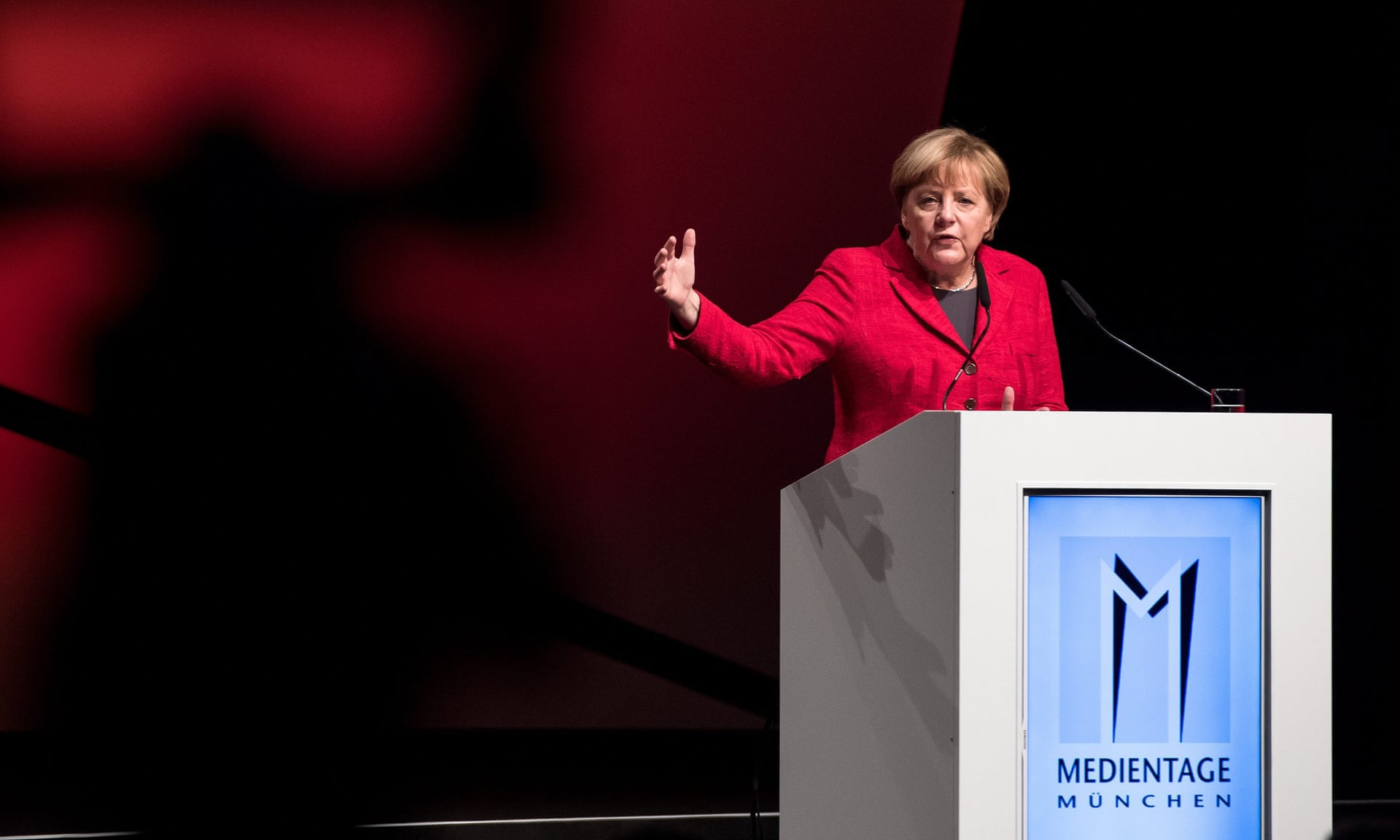At a media conference in Munich Tuesday, German chancellor Angela Merkel has called upon internet companies like Google to offer more transparency about their internet algorithms, as she believes they create echo chambers that can negatively effect politics. She sees the United States election cycle as the prime example of this, and is making this call in advance of her own bid for reelection next year. Read Kate Connolly’s report for the Guardian in partial below, in full here.
Merkel has joined a growing number of critics who have highlighted the dangers of receiving information that confirms an existing opinion or is recommended by people with similar ideas.
“This is a development that we need to pay careful attention to,” she told the conference, adding that a healthy democracy was dependent on people being confronted by opposing ideas.
“The big internet platforms, through their algorithms, have become an eye of a needle which diverse media must pass through [to access their users],” she said.
There has been increasing concern about so-called filter bubbles and echo chambers – the result of an internet search in which an algorithm supposes the information someone would like to see based on previous searches, as well as information it might have about their location or preferences – in the light of the growing strength of populist movements in Europe, the Brexit vote in the UK and the rise of Donald Trump in the US. This month, President Barack Obama’s former social media adviser Caleb Gardner highlighted the danger of filter bubbles – a phrase invented by the internet activist Eli Pariser.
“More likely than not, you get your news from Facebook,” Gardner told students at Northwestern University in Illinois.
“Forty-four per cent of US adults get news on the site, and 61% of millennials … if that doesn’t frighten you, you don’t know enough about Facebook’s algorithm. If you have a parent who’s a Trump supporter, they are seeing a completely different set of news items than you are.”
Merkel will have an eye on next year’s federal election in which she is expected to stand for a fourth term. The concern that the phenomenon of narrow debate which has been seen during the US presidential campaign might be replicated in Germany is one shared across Germany’s established parties.
Merkel called the issue a “challenge not just for political parties but for society as a whole”. If it was unclear what mechanisms were being used, it could “lead to a distortion of how people perceive things”, she said.
*Image: Angela Merkel at the media conference in Munich on Tuesday. Photograph: Sven Hoppe/EPA
